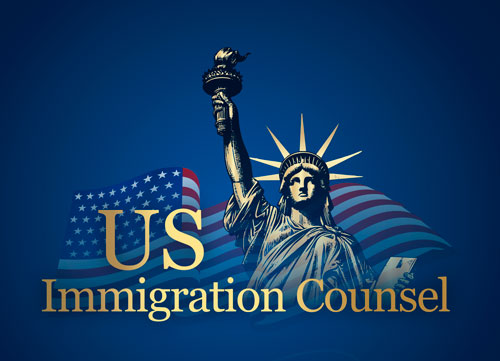Business & Investment Visas
Business and investment visas offer foreign entrepreneurs and professionals a legal pathway to establish or expand commercial activities in the United States. These visa options are critical tools for individuals who bring economic value through trade, capital, and specialized knowledge. Understanding the differences between visa categories and their requirements is essential for choosing the most suitable immigration route.
Types of Business and Investment Visas
There are several U.S. visa categories designed for business owners, investors, and international professionals. Each type of visa serves a specific purpose and has distinct eligibility standards based on the applicant’s background, investment structure, or trade volume.
B-1 Temporary Business Visa
The B-1 visa allows individuals to temporarily enter the U.S. for limited business purposes such as:
-
Attending meetings or conferences
-
Conducting contract negotiations
-
Participating in business training
-
Research or fact-finding missions
This visa typically permits a stay of up to six months, with one extension possible. It does not allow for direct employment in the U.S. and is intended for short-term business activities.
E-1 Treaty Trader Visa
The E-1 visa is for nationals of countries with which the U.S. maintains a trade treaty. To qualify, applicants must:
-
Engage in substantial international trade with the U.S.
-
Conduct at least 50% of their trade between their home country and the U.S.
-
Operate as a key employee or principal trader
Trade may include goods, services, banking, insurance, transportation, or technology. The visa is initially issued for two years and can be renewed indefinitely while trade continues.
E-2 Treaty Investor Visa
The E-2 visa is designed for individuals from treaty countries who invest a substantial amount of capital in a U.S. business. To qualify, the investor must:
-
Be a national of a treaty country
-
Own at least 50% of the enterprise or hold a supervisory role
-
Be actively involved in the day-to-day operations
-
Make a real and at-risk investment in a bona fide enterprise
Employees may also qualify if they share the investor’s nationality and hold executive or specialized roles. The visa is valid for two years and can be renewed indefinitely while the investment remains active.
EB-5 Immigrant Investor Visa
The EB-5 program provides a path to permanent residency for foreign nationals who:
-
Invest at least $1,050,000 in a new U.S. commercial enterprise; or
-
Invest $800,000 in a targeted employment area (TEA)
-
Create at least 10 full-time jobs for U.S. workers
Qualifying investments may include cash, equipment, inventory, or tangible assets valued at fair-market U.S. dollar rates. The capital must be lawfully obtained and personally at risk. Investors and eligible family members receive conditional green cards, which may be converted to permanent status after meeting program requirements.
L-1A Intracompany Transferee Visa
The L-1A visa allows international companies to transfer executives or managers to their U.S. affiliate, branch, or subsidiary. It also supports the establishment of new U.S. offices. After one year of working in the U.S., L-1A holders may become eligible to adjust status under the EB-1C immigrant visa category.
H-1B Specialty Occupation Visa
The H-1B visa allows U.S. employers to temporarily hire foreign professionals with specialized skills and a bachelor’s degree or higher. Occupations often include IT, finance, healthcare, engineering, and science. Employers must obtain labor certification before submitting a petition, and visa numbers are subject to annual caps.
Investment Requirements for EB-5 Visas
Capital invested under the EB-5 program must be:
-
Legally obtained
-
Personally at risk
-
Directed toward a new or troubled commercial enterprise
Eligible investments may consist of cash, property, equipment, or other tangible assets. Borrowed funds do not qualify. Supporting documentation such as business plans, economic impact analyses, and proof of asset ownership are typically required.
Business Visa Eligibility Criteria
Eligibility varies by visa type. For example:
-
EB-5 requires creating 10 full-time jobs and a qualifying capital investment
-
E-2 requires a substantial investment in a U.S. business and majority ownership or control
-
E-1 requires substantial and ongoing trade between the applicant’s home country and the U.S.
Each visa type has specific rules regarding investment size, business structure, and the investor’s role.
Common Business Entities Used for Investment
Applicants may invest in various business formats including:
-
Corporations
-
Sole proprietorships
-
Joint ventures
-
Partnerships
-
Business trusts
The entity must be active, generate income, and have the capacity to support the visa holder and their family.
Application Process Overview
For most business immigration visas, applicants must:
-
Submit the relevant petition to U.S. Citizenship and Immigration Services (USCIS)
-
Complete application forms and submit civil and financial documents
-
Attend consular interviews or adjustment of status procedures
-
Await the priority date (if applicable)
Processing times vary depending on the visa type, the applicant’s country of origin, and USCIS workloads.
Visa Duration and Renewals
-
B-1 visas: Up to 6 months, extendable once
-
E-1 and E-2 visas: Issued for 2-5 years, renewable indefinitely
-
EB-5 visas: Conditional green cards valid for 2 years, with eligibility to adjust to permanent status
Visa holders must remain compliant with terms and demonstrate active business engagement for renewals or status adjustments.
Investment Considerations and Real Estate
Owning residential property in the U.S. does not qualify for any visa benefits. To qualify for business immigration, investments must be active and tied to job creation or international trade. Real estate may be part of a broader commercial strategy, but passive ownership alone is not sufficient.

